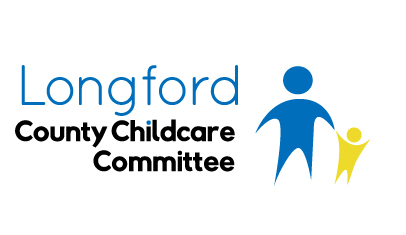Minister for Education Norma Foley and Minister for Children, Equality, Disability, Integration and Youth, Roderic O’Gorman, today announced a wide-ranging consultation process being jointly undertaken by their departments as part of the development of the successor strategy to the National Strategy Literacy and Numeracy for Learning and Life 2011 – 2020.
Minister Foley said:
“It is the aim of our government that every child and young person in Ireland will have the necessary literacy, numeracy and digital literacy skills which are crucial to each person’s ability to achieve their full potential, to live satisfying and rewarding lives and to participate fully in society.
“Everyone has a role to play in ensuring that no child or young person gets left behind. It is of utmost importance that we hear from as many different voices as possible. I encourage everyone to engage with this public consultation on the new ten-year Literacy, Numeracy and Digital Literacy Strategy, to share your thoughts on what is working well and what aspects need further development. It is only with the experiences and ideas of all that we can develop a strategy that makes a real difference to each individual learner, and improve our society.”
Minister O’Gorman said:
“We all have a role to play in ensuring babies, children and young people get a great start in life and have positive learning experiences. Parents, guardians, families, early years educators, teachers and all who form part of the child’s wider community all play a vital role in supporting children’s emerging language, literacy and numeracy development from a young age.
“As we reflect on the systemic successes and challenges of the Literacy and Numeracy for Learning and Life Strategy (2011-2020) and plan for the next phase of development it is crucial we capture the voice and lived experience of all who play a role. By participating in this public consultation your experiences will become the foundations on which the new ten year Literacy, Numeracy and Digital Literacy Strategy is built, ensuring it expands on past successes, overcomes challenges, and has the greatest possible impact on the lives of babies, children and young people in Ireland.”
Many gains have been achieved under the 2011 strategy. The structures and recommendations put in place now will shape what happens within our early learning and care settings and school communities over the next ten years.
This consultation is part of a wider process to seek views on what literacy, numeracy and digital literacy mean today. A series of targeted consultations will also be undertaken with key stakeholders, to include children and young people, school leaders and teachers, early learning and care managers and early years educators, parents/guardians and other relevant education stakeholders and partners so as to ensure that a wide cohort of people are aware of and have the opportunity to have their views heard.
The consultation survey and discussion paper is available here until 3 February 2023: www.gov.ie/LNDLconsultation.
Notes
National Strategy: Literacy and Numeracy for Learning and Life 2011-2020
In July 2011, the Department of Education launched the National Strategy: Literacy and Numeracy for Learning and Life 2011-2020. The strategy set out a clear vision for raising standards in literacy and numeracy in early learning and care (ELC), primary and post-primary settings by 2020.
The actions in the strategy were organised across six pillars of the education system:
(i) Enabling parents and communities to support children’s literacy and numeracy development.
(ii) Improving teachers’ and early childhood care and education (ECCE) practitioners’ professional practice.
(iii) Building the capacity of school leadership.
(iv) Improving the curriculum and the learning experience.
(v) Helping students with additional learning needs to achieve their potential.
(vi) Improving assessment and evaluation to support better learning in literacy and numeracy.
The Interim Review of the National Strategy: Literacy and Numeracy for Learning and Life (2011-2020) published in 2017, took stock of the implementation over the first five years. It also considered a range of national and international research findings and involved a consultation process across a wide range of stakeholders. The interim review highlighted the considerable progress which had been made since the launch of the strategy in 2011, notably in promoting a high level of literacy for all. In addition, it identified the successes and challenges and highlighted five areas that the strategy should address before its culmination in 2020.
These were:
- achievements in numeracy to be prioritised and strengthened
- focus on children and young people experiencing educational disadvantage
- strengthening literacy for and through the Irish language
- developing and enhancing digital literacy skills
- co-ordinating and collaborating with key stakeholders so as to welcome opportunities to reinforce and resource the literacy and numeracy message
The report of the interim review did not replace the (2011-2020) strategy. The strategy continued to be the focal point within our education system for improving literacy and numeracy outcomes to 2020.
Towards a New Literacy, Numeracy and Digital Literacy Strategy
There are a number of key factors that will underpin the new ten-year National Literacy, Numeracy and Digital Literacy Strategy. There are informed by the implementation experiences of Literacy and Numeracy for Learning and Life 2011-2020. These factors are:
1. Enabling parents and communities to support children’s literacy and numeracy development
2. Supporting teachers’ and early years educators’ professional practice and leadership skills
3. Improving the curriculum and learning experience
4. Supporting diverse learners to achieve their potential
5. Improving assessment and evaluation to support better learning in literacy, numeracy and digital literacy
6. Digital literacy
The consultation process
This consultation is part of a wider process to seek views on what literacy, numeracy and digital literacy mean today. The consultation process will consist of the following elements:
- public consultation surveys and call for submissions
- stakeholder focus group consultation
- stakeholder consultation event
- series of bilateral meetings
It is intended that the new strategy will be published in 2023.

